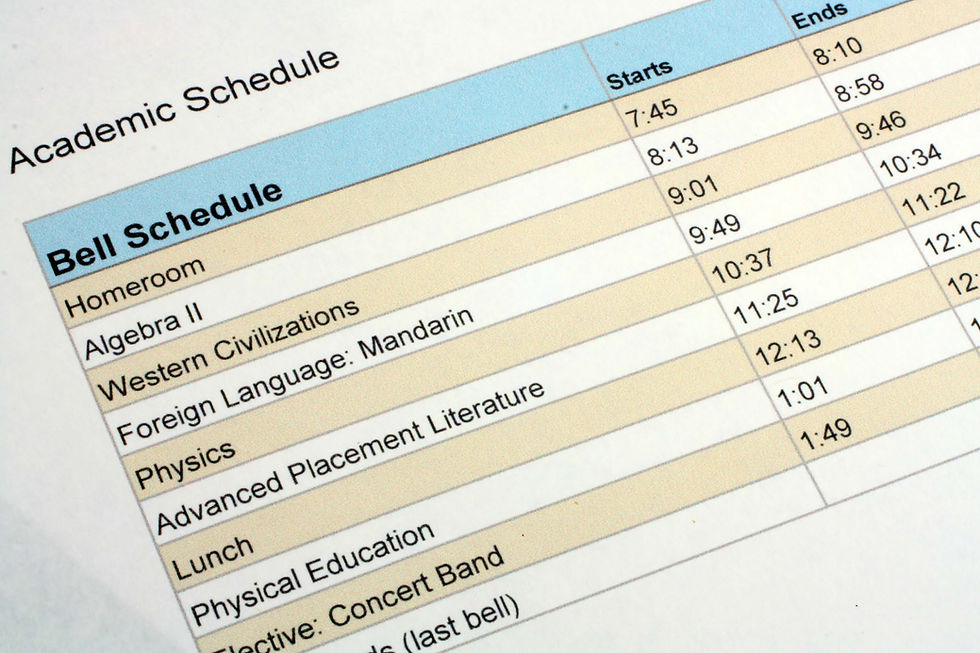Understanding Letters of Recommendation
- Katie Garrett, Founder

- Mar 31, 2025
- 2 min read
The application requirements for most colleges in the US include a letter of recommendation from the student's high school guidance counselor and often one or two of their classroom teachers. These letters provide colleges with insight into who you are beyond your grades and test scores. Typically, there are two main types of recommendations you'll need:

Types of Recommendation Letters
Teacher Recommendations
Colleges often ask for letters from teachers who have taught you in core subjects such as English, math, science, social studies, or a world language, preferably during your junior or senior year. The teacher you ask should be someone who knows your academic strengths well and can speak about your potential for success in college courses.
Counselor Recommendations
A letter from your school counselor gives colleges a sense of your role within the school community. Many counselors are busy and may not know every student personally, and colleges understand this. However, some colleges require letters of recommendation from the counselor as they value the counselor's perspective on your academic journey and personal character.
Tips for Requesting Recommendation Letters
Teachers are busy professionals, and writing a recommendation is a favor they're doing for you. Here's how you can make their job easier:
Know the Requirements
High schools, colleges, and individual teachers may have specific guidelines for recommendations. Before asking for a letter, make sure you're clear on the requirements and deadlines for both your school and each college.
Choose the Right Teachers
Pick teachers who can write a personal and thoughtful recommendation. A teacher who knows you well and can speak to your work ethic and character will provide a strong letter.
Ask Early
Request recommendations well in advance—ideally, at the beginning of your senior year or even before the end of junior year. Waiting until fall can be risky, as teachers and counselors will be overwhelmed with requests by then, and they may not have enough time to write a letter for you.
Give Plenty of Notice
Provide your recommenders with at least a month's notice before the application deadline. Writing a great recommendation letter takes time, and the earlier you ask, the better.
Ask Politely
Never demand a letter. Instead, politely ask, "Would you be willing to write a positive letter of recommendation for me?" If someone declines, don't take it personally. Thank them and move on to another teacher.
Provide Supporting Information
Many schools ask students to complete a questionnaire or "brag sheet" to help recommenders write a more detailed letter. Be thorough and turn it in early, giving your writers plenty of time to review your achievements.
Show Gratitude
Lastly, once your letters are complete, take the time to thank your recommenders. Also, keep them updated on your college admissions results. They'll appreciate hearing about the outcome of your applications!
Garrett Educational Consulting provides comprehensive counseling for college and boarding school admissions as well as academic advisement. Click HERE to learn about our services.
Prepared especially for our clients and their families The information included in this newsletter is generic and assumes no liability for loss or damage due to reliance on the material contained herein. Copyright © 2025 by The College Advisor, Inc. All rights reserved.




This post clearly explains why recommendation letters matter beyond grades, and I appreciate how practical the tips feel. When I was applying to colleges, I learned the hard way that relationships matter more than shortcuts like wishing someone could Do My Algebra Class for you. Asking early and giving teachers real context made a huge difference for me. The reminder to show gratitude really sticks, because those small gestures often leave the strongest impression.
This post explains recommendation letters in a really clear and practical way, especially for students who feel unsure about the process. When I was preparing my applications and also had to Write My College Assignment during the same week, I realized how important it was to plan ahead and ask early. The tips about choosing the right teachers and giving notice are spot on. It’s a good reminder that thoughtful preparation makes stressful steps much easier.
Do you find it difficult to keep up with demanding assignments, challenging subjects, or the need to maintain good grades as a student in Canada? There is a clever answer, and you are not alone. Students in Canada who want to raise their academic standing are increasingly turning to Assignment Help Online services. These services keep you in touch with experts who are aware of the requirements for courses, citation styles, and university standards in Canada.
Among the greatest benefits? Saves time! While professionals accurately and efficiently do your assignments, you may concentrate on editing or studying for the exam. Many students who have benefited from these services say that their grades have significantly improved and that their academic stress has reduced.…
Break boundaries in bold blush! The women's pink Carhartt jacket redefines work wear with a feminine twist, delivering iconic toughness in a soft, stylish shade that commands attention from trail to town.
Letters of recommendation play a crucial role in the college admission process, offering a deeper look into your academic journey and character. Just like choosing the right teacher for a recommendation, selecting the right academic support is key. Services like Assignment Help Cardiff can guide students through their studies, helping them build strong relationships with teachers. These connections can lead to impactful recommendation letters. Always plan ahead and communicate clearly with your recommenders.